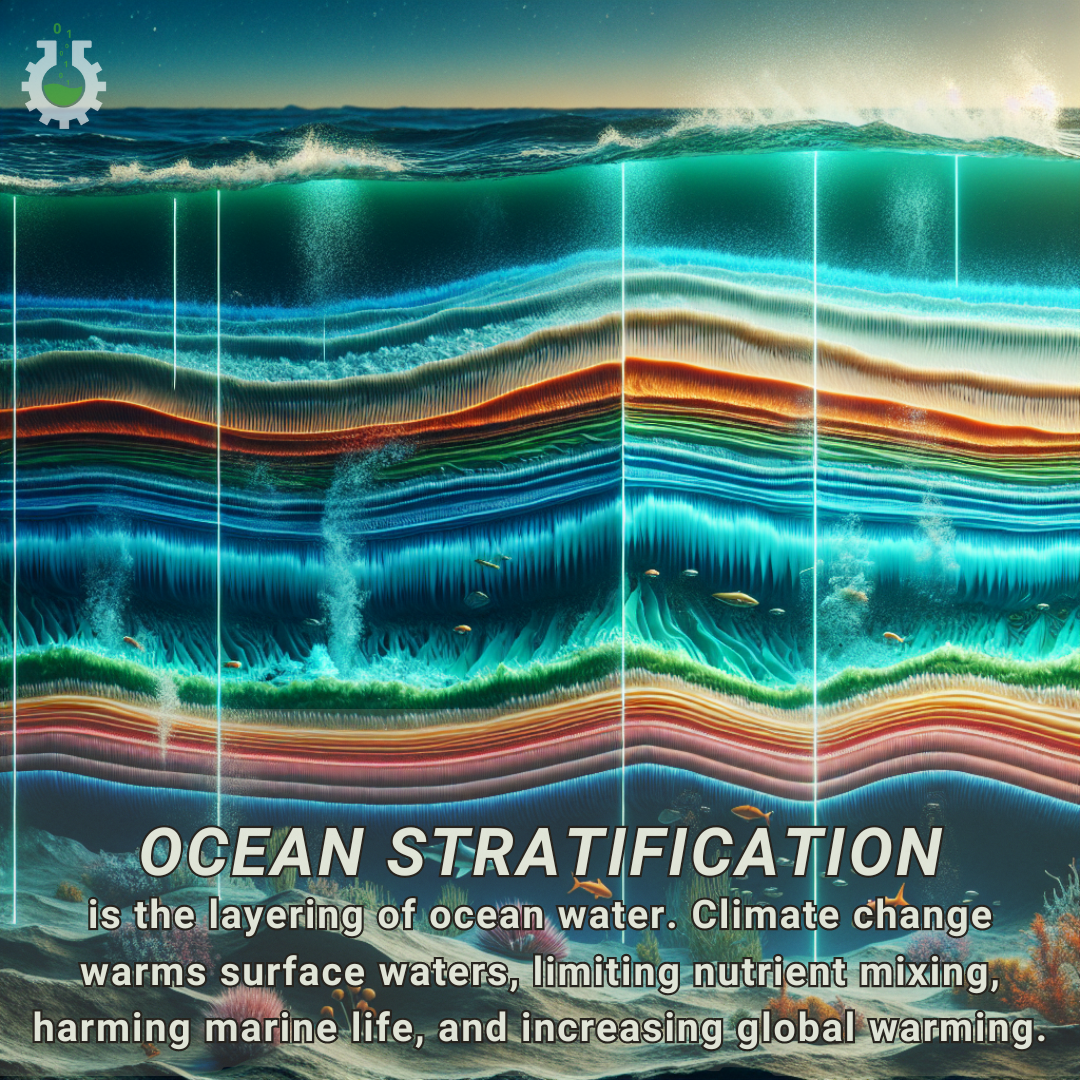September 17, 2024
Climate Change Poster Collection of the Week – Ocean Stratification
Book a Demo
This week’s Climate Change Poster Collection highlights Ocean Stratification, refers to the layering of water in the ocean based on differences in temperature and salinity, creating distinct layers that do not easily mix. This natural phenomenon is crucial for regulating global climate, marine ecosystems, and the carbon cycle. However, as climate change accelerates, it is increasingly disrupting this delicate balance, leading to far-reaching consequences.
At its core, ocean stratification is driven by the density differences between warm, less salty surface waters and the colder, saltier deep waters. Under normal conditions, this stratification ensures a stable marine environment where nutrients from the deep waters are periodically brought to the surface, fueling the growth of phytoplankton—the foundation of the marine food web. However, rising global temperatures are intensifying this stratification. Warmer surface waters increase the temperature gradient between the ocean’s layers, making it more difficult for the layers to mix. This enhanced stratification inhibits the upwelling of nutrients, leading to a decline in phytoplankton productivity, which in turn affects the entire marine food chain, from tiny zooplankton to large marine mammals and commercial fish stocks.
Moreover, the implications of intensified ocean stratification extend beyond marine ecosystems. The ocean is a major carbon sink, absorbing about a quarter of the carbon dioxide emitted by human activities. The process of carbon sequestration is closely linked to the mixing of ocean layers. Phytoplankton absorb CO2 during photosynthesis, and when they die, they sink to the deeper layers, effectively transporting carbon from the surface to the ocean’s depths. Enhanced stratification disrupts this process, reducing the ocean’s capacity to sequester carbon and exacerbating atmospheric CO2 levels, thereby accelerating global warming.
Additionally, ocean stratification has significant implications for global weather patterns and climate systems. For instance, the reduced mixing of ocean layers can influence the intensity and frequency of extreme weather events, such as hurricanes and typhoons, which derive their energy from warm surface waters. Furthermore, changes in ocean stratification can alter major ocean currents, such as the Gulf Stream, which play a pivotal role in regulating climate by redistributing heat around the planet.
Ocean stratification is a critical yet complex component of the Earth’s climate system that is being profoundly impacted by climate change. The intensification of this stratification due to rising global temperatures is disrupting marine ecosystems, diminishing the ocean’s ability to sequester carbon, and altering global weather patterns. As we continue to grapple with the multifaceted challenges of climate change, understanding and addressing the impacts on ocean stratification will be essential for safeguarding both marine and terrestrial environments, as well as ensuring the health of our planet for future generations.
Discover an inspiring collection of climate change poster.



